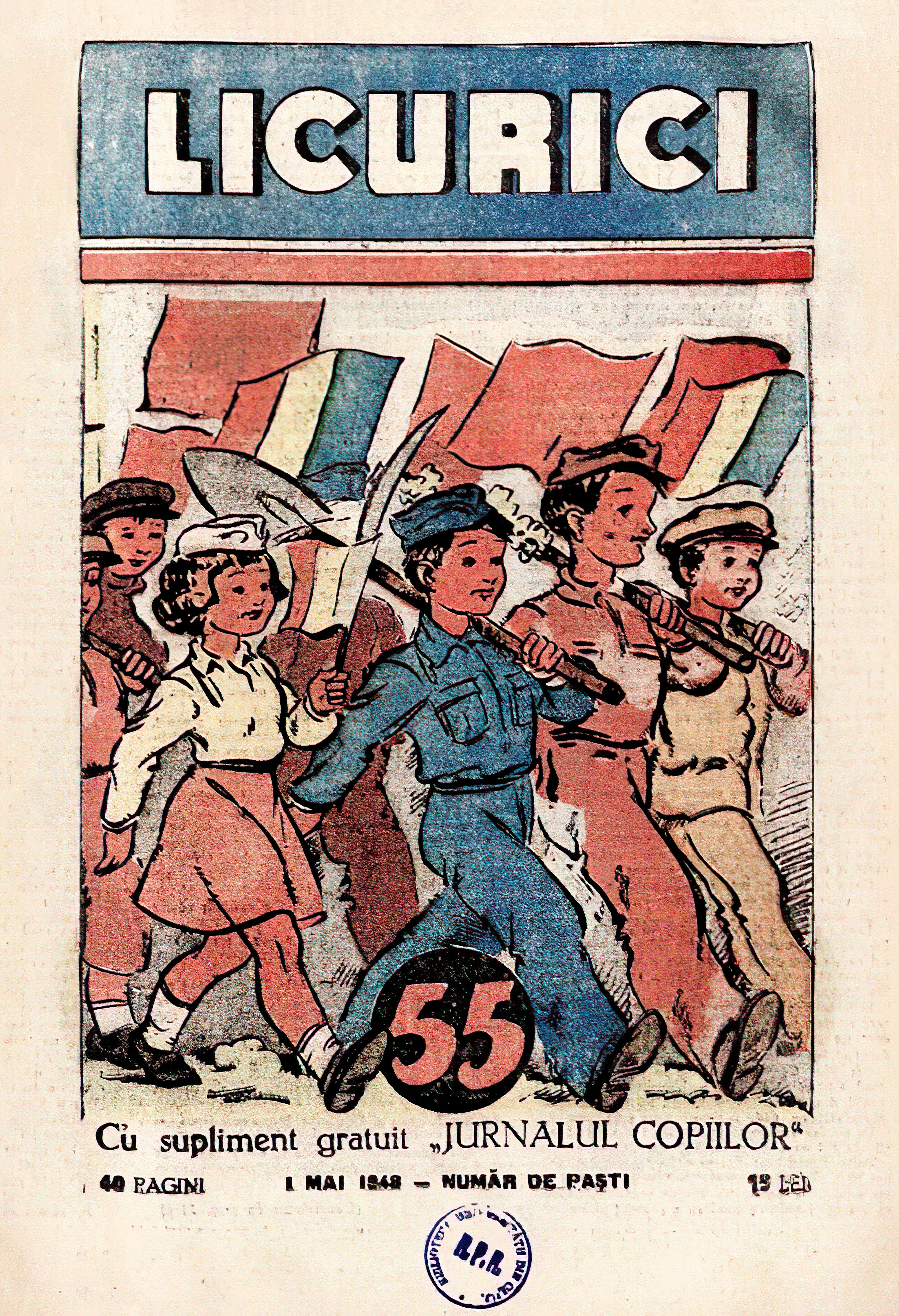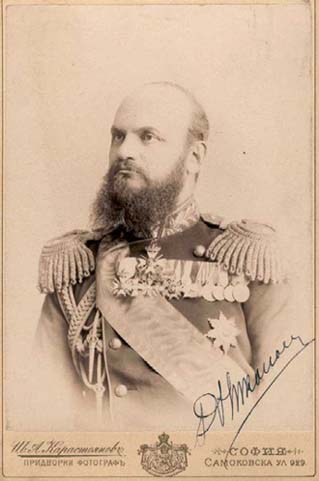|
Vladimir Cavarnali
Vladimir or Vlad Cavarnali (also known as Cavarnalli or Kavarnali; bg, Владимир Каварнали; 10 August 1910 – 20 July 1966) was a Bessarabian-born Romanian poet, journalist, editor, and political figure. Though his ethnic background was Bessarabian Bulgarian and Gagauz, he embraced Romanian nationalism and would not approve of separation between the Romanian and Bessarabian literary traditions. In his twenties, he debuted in politics with the National Liberal Party, before switching to the dissident fascist Crusade of Romanianism, and then to the far-right Romanian Front. By contrast, Cavarnali's poetic work was heavily indebted to the influence of Russian Symbolism, and especially to Sergei Yesenin—whose proletarian style he closely mirrored, after removing most of its political connotations. He was also a translator of Russian and more generally Slavic literature, earning praise for his version of Maxim Gorky's ''Mother''. Though he won the Fundațiil ... [...More Info...] [...Related Items...] OR: [Wikipedia] [Google] [Baidu] |
Bolgrad
Bolhrad ( uk, Болгра́д, Bolhrad, ; bg, Болград, Bolgrad; ro, Bolgrad, Gagauz: ''Bolgrad''), is a small city in Odesa Oblast (province) of southwestern Ukraine, in the historical region of Budjak. It is the administrative center of Bolhrad Raion (district) and hosts the administration of Bolhrad urban hromada, one of the hromadas of Ukraine. Population: History Bolhrad was founded in 1821 by Bulgarian settlers in Bessarabia, under the direction of General Ivan Inzov who is "revered" by Bolhrad residents as the "Founder of Our City." Bolhrad became part of Moldavia from 1856 to 1859, Romania from 1859 to 1878, 1918 to 1940, and 1941 to 1944, before being incorporated into the USSR (in the territory of the Ukrainian SSR), and later independent Ukraine. In 1921, there was a terrorist attack on a palace on the city. File:Bolgrad, Sveto Preobrazenie, katedrala, 1938.jpg, Transfiguration Cathedral File:Historical image of Bolhrad High School (Romania time).jpg, ... [...More Info...] [...Related Items...] OR: [Wikipedia] [Google] [Baidu] |
Bessarabian Bulgarians
The Bessarabian Bulgarians ( bg, бесарабски българи, ''besarabski bǎlgari'', ro, bulgari basarabeni, uk, бесарабські болгари, ''bessarabski bolháry'') are a Bulgarian minority group of the historical region of Bessarabia, inhabiting parts of present-day Ukraine (Odesa Oblast) and Moldova. Location and number Modern Ukraine In Ukraine, the number of Bessarabian Bulgarians is estimated at over 129,000 in Budjak (in the Odesa Oblast in the southern part of the country), and 75,000 elsewhere (mostly in other parts of Southern Ukraine), according to the 2001 Ukrainian Census, which counted a total of 204,600 Bulgarians in Ukraine. Bulgarians are a majority in Bolhrad District (45,600 of its 75,000 inhabitants), but they also inhabit other districts of Budjak: Artsyz – 20,200 of the 51,700, Tarutyne – 17,000 of the 45,200, Izmail – 14,100 of the 54,700, and Sarata – 10,000 of the 49,900. There are also 8,600 Bulgarians in the city of Iz ... [...More Info...] [...Related Items...] OR: [Wikipedia] [Google] [Baidu] |
Mother (novel)
''Mother'' (russian: Мать, Mat') is a novel written by Maxim Gorky in 1906 about revolutionary factory workers. It was first published, in English, in ''Appleton's Magazine'' in 1906, then in Russian in 1907. Although Gorky was highly critical of the novel, the work was translated into many languages, and was made into a number of films. The German playwright Bertolt Brecht and his collaborators based their 1932 play '' The Mother'' on this novel. Modern critics consider it possibly the least successful of Gorky's novels, however, they call it Gorky's most important novel written before 1917. Background Gorky wrote the novel on a trip to the United States in 1906. The political agenda behind the novel was clear. In 1905, after the defeat of Russia's first revolution, Gorky tried to raise the spirit of the proletarian movement by conveying the political agenda among the readers through his work. He was trying to raise spirit among the revolutionaries to battle the defeatist ... [...More Info...] [...Related Items...] OR: [Wikipedia] [Google] [Baidu] |
Maxim Gorky
Alexei Maximovich Peshkov (russian: link=no, Алексе́й Макси́мович Пешко́в; – 18 June 1936), popularly known as Maxim Gorky (russian: Макси́м Го́рький, link=no), was a Russian writer and socialist political thinker and proponent. He was nominated five times for the Nobel Prize in Literature. Before his success as an author, he travelled widely across the Russian Empire changing jobs frequently, experiences which would later influence his writing. Gorky's most famous works are his early short stories, written in the 1890s (" Chelkash", " Old Izergil", and " Twenty-Six Men and a Girl"); plays '' The Philistines'' (1901), '' The Lower Depths'' (1902) and '' Children of the Sun'' (1905); a poem, " The Song of the Stormy Petrel" (1901); his autobiographical trilogy, '' My Childhood, In the World, My Universities'' (1913–1923); and a novel, ''Mother'' (1906). Gorky himself judged some of these works as failures, and ''Mother'' has ... [...More Info...] [...Related Items...] OR: [Wikipedia] [Google] [Baidu] |
Slavic Languages
The Slavic languages, also known as the Slavonic languages, are Indo-European languages spoken primarily by the Slavic peoples and their descendants. They are thought to descend from a proto-language called Proto-Slavic, spoken during the Early Middle Ages, which in turn is thought to have descended from the earlier Proto-Balto-Slavic language, linking the Slavic languages to the Baltic languages in a Balto-Slavic group within the Indo-European family. The Slavic languages are conventionally (that is, also on the basis of extralinguistic features) divided into three subgroups: East, South, and West, which together constitute more than 20 languages. Of these, 10 have at least one million speakers and official status as the national languages of the countries in which they are predominantly spoken: Russian, Belarusian and Ukrainian (of the East group), Polish, Czech and Slovak (of the West group) and Bulgarian and Macedonian (eastern dialects of the South group), and Serbo-C ... [...More Info...] [...Related Items...] OR: [Wikipedia] [Google] [Baidu] |
Sergei Yesenin
Sergei Alexandrovich Yesenin ( rus, Сергей Александрович Есенин, p=sʲɪrˈɡʲej ɐlʲɪkˈsandrəvʲɪtɕ jɪˈsʲenʲɪn; ( 1895 – 28 December 1925), sometimes spelled as Esenin, was a Russian lyric poet. He is one of the most popular and well-known Russian poets of the 20th century, known for "his lyrical evocations of and nostalgia for the village life of his childhoodno idyll, presented in all its rawness, with an implied curse on urbanisation and industrialisation." Biography Early life Sergei Yesenin was born in Konstantinovo in Ryazan Governorate of the Russian Empire to a peasant family. His father was Alexander Nikitich Yesenin (1873–1931), his mother's name was Tatyana Fyodorovna (nee Titova, 1875–1955). [...More Info...] [...Related Items...] OR: [Wikipedia] [Google] [Baidu] |
Russian Symbolism
Russian symbolism was an intellectual and artistic movement predominant at the end of the 19th and beginning of the 20th century. It arose separately from European symbolism, emphasizing mysticism and ostranenie. Literature Influences Primary influences on the movement weren't merely western writers such as Brix Anthony Pace, Paul Verlaine, Maurice Maeterlinck, Stéphane Mallarmé, French symbolist and decadent poets (such as Stéphane Mallarmé, Paul Verlaine and Charles Baudelaire), Oscar Wilde, D'Annunzio, Joris-Karl Huysmans, the operas of Richard Wagner, the dramas of Henrik Ibsen or the broader philosophy of Arthur Schopenhauer and Friedrich Nietzsche. According to the experienced Belgian slavist Emmanuel Waegemans, "who was and still is indeed considered to be the expert par excellence in Russian literature and culture from the eighteenth-century onwards" Russian thinkers themselves contributed largely to this movement: such examples would be the irrationalistic and ... [...More Info...] [...Related Items...] OR: [Wikipedia] [Google] [Baidu] |
Romanian Front
The Romanian Front ( ro, Frontul Românesc, FR) was a moderate fascist party created in Romania in 1935. Led by former Prime Minister Alexandru Vaida-Voevod, it originated as a right-wing splinter group from the mainstream National Peasants' Party (PNȚ). While in power, Vaida had an ambiguous approach to the Iron Guard, and constructed his own radical ideology; the FR had a generally xenophobic program of positive discrimination, being implicitly (and eventually explicitly) antisemitic. It was subsumed to the policies of King Carol II, maneuvering between the mainstream National Liberals, the PNȚ's left-wing, and the more radically fascist Guardists. Vaida tried to compete with the former two and appease the latter, assuming fascist trappings such as the black-shirted uniform. Like the Guard, he supported aligning Romania with the Axis powers, though he also hoped to obtain their guarantees for Greater Romania's borders. The FR's lower echelons included Viorel Tilea and other ... [...More Info...] [...Related Items...] OR: [Wikipedia] [Google] [Baidu] |
Crusade Of Romanianism
The Crusade of Romanianism ( ro, Cruciada Românismului, also known as ''Vulturii Albi'', "White Eagles", ''Steliști'', "Stelists", or ''Cruciați'', "Crusaders") was an eclectic far-right group in Romania, founded in late 1934 by Mihai Stelescu. It originated as a dissident faction of the Iron Guard, Romania's main fascist movement, and was virulently critical of Guard leader Corneliu Zelea Codreanu. Stelescu, who had served as one of the Guard's orators and paramilitary organizers, reinterpreted nationalist ideology through the lens of anticapitalism and "humane" antisemitism; also appropriating some ideas from communism and Italian fascism, his followers were sometimes described as Romania's Strasserists. The Crusade was briefly but centrally associated with Panait Istrati, world-renowned novelist and dissident communist, who, before his death in early 1935, added into the mix of "Romanianism" some elements of libertarian socialism. Stelists offered an alternative parami ... [...More Info...] [...Related Items...] OR: [Wikipedia] [Google] [Baidu] |
National Liberal Party (Romania, 1875)
The National Liberal Party ( ro, Partidul Național Liberal, PNL) was the first organised political party in Romania, a major force in the country's politics from its foundation in 1875 to World War II. Established in order to represent the interests of the nascent local bourgeoisie, until World War I it contested power with the Conservative Party, supported primarily by wealthy landowners, effectively creating a two-party system in a political system which severely limited the representation of the peasant majority through census suffrage. Unlike its major opponent, the PNL managed to preserve its prominence after the implementation of universal male suffrage, playing an important role in shaping the institutional framework of ''Greater Romania'' during the 1920s. History Dominated throughout its existence by the Brătianu family, the party was periodically affected by strong factionalism. Among the many splits during the party's early history a notable one was that led ... [...More Info...] [...Related Items...] OR: [Wikipedia] [Google] [Baidu] |
Literature Of Moldova
Literature of Moldova comprises the literature of the principality of Moldavia, the later trans-Prut Moldavia, Bessarabia, the Moldavian Autonomous Soviet Socialist Republic, the Moldavian Soviet Socialist Republic, and the modern Republic of Moldova, irrespective of the language. Although there has been considerable controversy over linguistic identity in Moldova, the Moldovan and Romanian languages are virtually identical and share a common literary history. Moldovan literature, therefore, has considerable overlap with Romanian literature. History The creation of Moldovan written literature was preceded by a rich folklore that emerged in the 10th and 11th centuries CE: calendrical and family ritual poetry (''Plugusorul''), fairy tales, heroic epics (''Hydra'', ''Toma Alimos'', ''The Knight Gruia Grozovan'', ''Mihul Kopilul'', ''Codreanu'', ''Corbea''), historical songs (''Duca Vode'', ''Buzhor'', ''Tobultok''), folk legends, proverbs, popular sayings, lyrical songs, ballads ( ... [...More Info...] [...Related Items...] OR: [Wikipedia] [Google] [Baidu] |






.jpg)